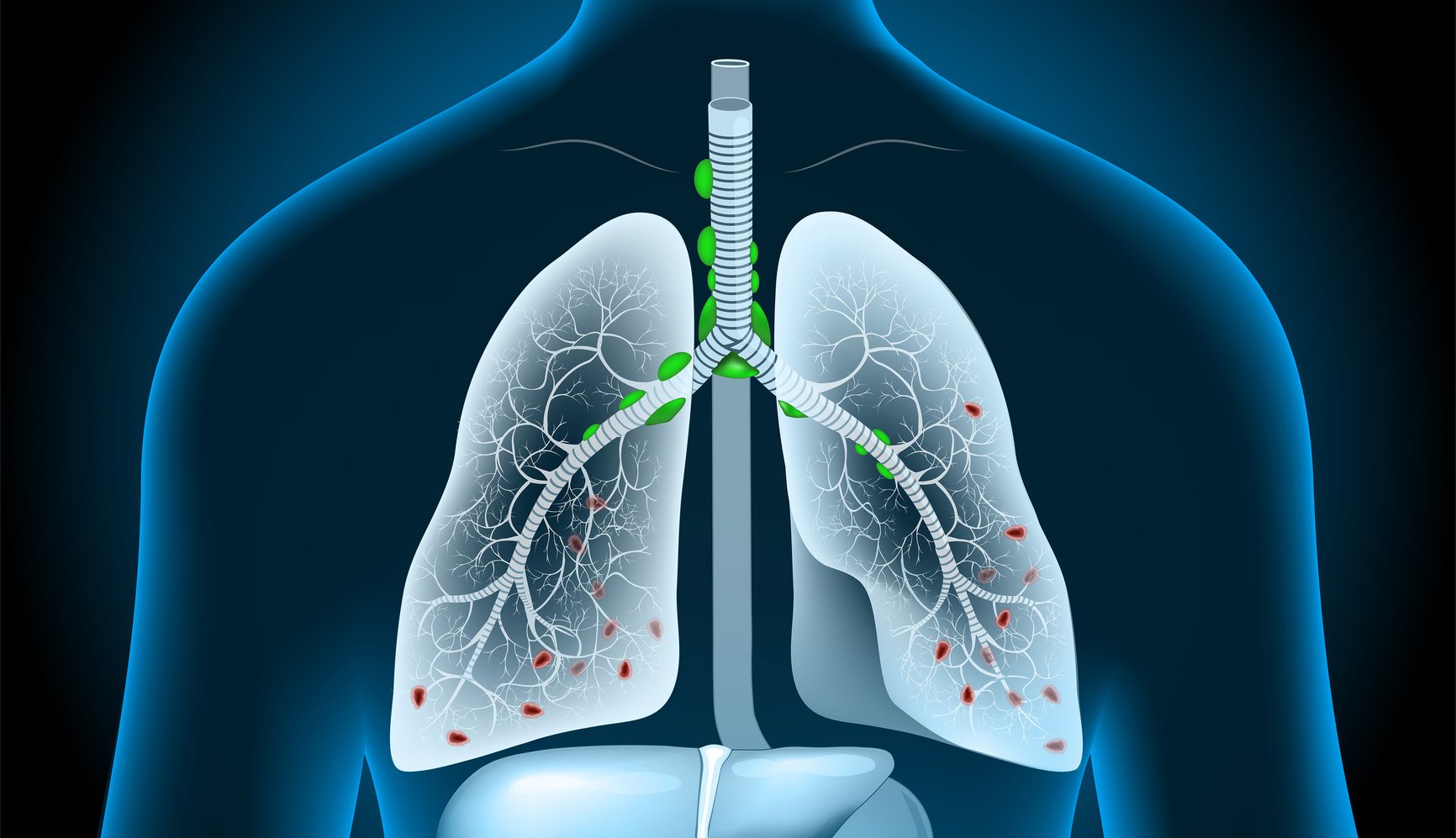Randomized controlled trials remain the pivotal gold standard in the field of MS therapy studies. “Real-world observational data from large cohorts or registries can, however, provide valuable supplements for many questions.
With increasing therapy options for multiple sclerosis (MS), relevant questions for the therapy decision arise, for example regarding the individual prognosis, the choice of substance or even the sequence of the applied drugs. While therapeutic studies of the highest evidence class justify the approval of new substances, they can only answer important questions in everyday clinical practice to a very limited extent. Thus, randomized, controlled, and double-blind trials (RCTs) are considered the “gold standard” for therapy studies. In the field of MS, the study with interferon-beta 1b in the early 1990s set a standard for modern therapy studies with these quality requirements as well as with the inclusion of magnetic resonance imaging as an objective parameter [1]. However, while study methodology has steadily evolved and studies have become correspondingly more complex (and difficult), RCTs have struggled to answer some important questions. For example, the question of patient groups that respond particularly well to therapy can only be answered to a very limited extent by analyzing (small) subgroups. RCTs also select specific patient groups that are not necessarily representative of everyday clinical practice. The exclusion criteria usually include relevant concomitant diseases, so that mostly young, internally healthy patients with relatively high disease activity are included in corresponding studies. In addition, so-called “patient reported outcomes”, which are becoming increasingly important for payers as well, are often relegated to the background. In addition, the relatively short study duration of two to three years does not allow any conclusions on long-term efficacy and safety. Last but not least, pivotal phase III trials often do not provide guidance in the direct comparison of different compounds. One method that can be used for this question is meta-analysis, or in the case of indirect comparison (lack of direct comparative studies) of substances, the so-called network meta-analysis. However, these analyses are often based on strict assumptions, which can impair or distort the validity of the results [2].
“Real world” observational studies
Increasingly, systematic data collection is occurring in large cohort studies and registries. These observations of larger patient cohorts allow statements to be made about the use of various substances in everyday clinical practice and can provide valuable information for many of the questions mentioned [3]. However, the lack of controlled conditions also leads to several possibilities of outcome bias. In pronounced cases, this can lead to observed differences and effects being falsely attributed to a substance rather than to other (known and unknown) prognostic factors and thus being the result of a selection effect. Whereas in clinical trials randomization a priori balances treatment arms for factors such as relapse rate or MRI lesion burden, in observational studies this can only be approximated retrospectively using statistical methods. One such method that has recently been increasingly applied in the field of MS is propensity score matching. In this process, groups to be compared are aligned with each other on the basis of various characteristics. Typical prognosis-determining characteristics in MS include, for example, relapse rate or disease duration. The “propensity score” (probability of a patient receiving the therapy to be tested) is determined for each patient and enables different groups to be compared. However, this method is particularly dependent on the most comprehensive collection of data relevant to the disease and therapy. Similarly, data quality, e.g., standardized recording of neurological disability, is critical. In addition, the adjustment is possible especially for known disturbance variables. Thus, any statistical procedures designed to mitigate bias in comparisons within observational studies are potentially prone to error. On the other hand, these methods can enable comparability, especially for large data sets, e.g., in the context of international cohort or registry studies.
Corresponding questions that have been/are being addressed in large monocentric as well as multicenter/multinational observational cohorts include prognostic factors in early phases of MS or in potential initial manifestation of MS (clinically isolated syndrome) [3]. In addition, analyses of large cohorts can contribute significantly to the unambiguous definition of clinical phenotypes such as secondary chronic progressive MS. Using the data of more than 17,000 patients from the international MSBase registry, a definition based on EDSS, functional score, and limitation in the pyramidal functional system was developed that allows the diagnosis of SPMS with high accuracy and reproducibility within a short observation period (three months) [4]. This exact definition, in turn, has relevance for future RCTs that feature conversion to SPMS as either an inclusion criterion or endpoint.
A highly relevant question for clinical practice deals with potential prognostic factors regarding response to immunotherapy. Quantitative algorithms for prognosis assessment under ongoing immunotherapy result from such studies [5,6]. Thus, the combination of relapses with MRI activity appears to have the best predictive power for nonresponse to interferon-beta. In addition, isolated MRI activity during the first year of interferon-beta therapy also appears to be relevant to disability progression over three subsequent years [6]. However, the exact number of e.g. new T2 lesions or the exact threshold is highly variable in different studies. Whether these different thresholds are related to methodological aspects (e.g., timing of MRI examinations, drug efficacy, different definitions of treatment response) or whether there is actually a degree of minimal (subclinical) disease activity that can be tolerated is unclear in this context. However, this example also shows that results from retrospective analyses of large data sets can be quite hypothesis-generating with respect to underlying pathomechanisms. For example, transferring such results beyond interferons to other compounds could provide insights into the postulated mechanism of action (e.g., differential effects on the blood-brain barrier in MRI and subsequent disability progression). Large observational studies also have pharmacoeconomic implications in that, for example, the majority of these studies suggest a positive effect of early and consistent immunotherapy on long-term disability, which is consistent with corresponding long-term data from pivotal studies [3]. Also, in specific clinical situations (e.g., “escalation” of first-line therapy, discontinuation of natalizumab therapy), appropriate larger observational studies provide valuable information that has not otherwise been investigated in RCTs. Last but not least, large disease registries also have the advantage of systematically recording the long-term safety of individual drugs in comparison with other similar but differently treated patient groups. Also, the safety of therapy sequences can be better studied than in short RCTs.
Conclusion
In summary, randomized controlled trials remain the gold standard for investigating the efficacy of therapies. However, the rigid study design often falls short for the conditions of everyday clinical practice. In everyday life, many questions are relevant that cannot all be answered in randomized controlled trials, whether for methodological, financial, or ethical reasons. While meta-analyses are also subject to rigid basic assumptions and provide only limited additional information, especially on the robustness of the data, so-called “real world observational” data can be valuable complements. Data to date suggest that randomized trials and large nonrandomized trials usually produce similar results. In addition, further development of statistical methods aims to demonstrate the validity of the models in larger MS cohorts while minimizing corresponding further sources of confounding. Nevertheless, the step of translating study/group-level results to the individual patient encounters diverse obstacles for all approaches. In addition, further linkage with additional paraclinical methods or biomarkers (e.g., neurofilament light as a biomarker of neurodegeneration), which in turn can also biologically validate the clinical data, would be desirable.
Take-Home Messages
- Randomized controlled trials (RCTs) continue to be the regulatory gold standard in the field of multiple sclerosis therapeutic trials.
- “Real world observational data” from large cohorts or registries can provide valuable complements for many questions not addressed by RCT.
- The different methodological approaches are complementary to each other, and difficulties still exist in translating study-level data into instructions for action for individual patients.
- The systematic further development of large data bases and their statistical and methodological foundations (“Big MS Data”) together with further developments in the biomarker field gives hope for substantial progress.
Literature:
- IFNB Multiple Sclerosis Study Group: Interferon beta-1b is effective in relapsing-remitting multiple sclerosis. I. Clinical results of a multicenter, randomized, double-blind, placebo-controlled trial. Neurology 1993; 43: 655-661.
- Kiefer C, Sturtz S, Bender R: Indirect comparisons and network meta-analyses: estimation of effects in the absence of head-to-head trials – part 22 of a series on evaluation of scientific publications. Dtsch Arztebl Int 2015; 112: 803-808.
- Trojano M, et al: Treatment decisions in multiple sclerosis – insights from real world observational studies. Nature Reviews Neurol 2017; 13: 105-118.
- Lorscheider J, et al: Defining secondary progressive multiple sclerosis. Brain 2016; 139: 2395-2405.
- Sormani MP, et al: Scoring treatment response in patients with relapsing multiple sclerosis. Mult Scler 2013; 19: 605-612.
- Sormani MP, et al: Assessing response to interferon-β in a multicenter dataset of patients with MS. Neurology 2016; 87: 134-140.
InFo NEUROLOGY & PSYCHIATRY 2017; 15(4): 8-10.











